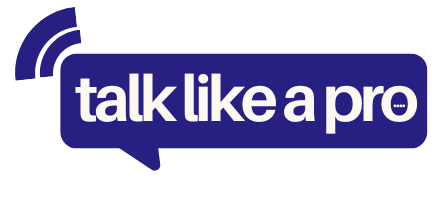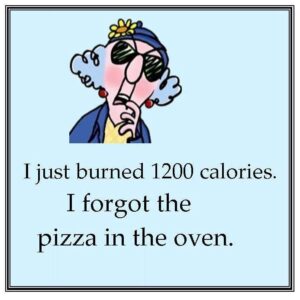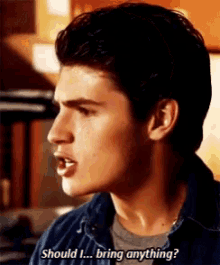So, someone just hit you with the classic “My bad.” Maybe they spilled coffee on your new shirt, or perhaps they flaked on a meeting. Whatever the “my bad” moment was, doesn’t it feel like you’re often left standing there, wondering how exactly you should respond? It’s not quite a full apology but still more than shrug material. Let’s untangle this communication conundrum together.
Friendly Responses to “My Bad”
“No worries!”
This is your go-to response when you really don’t mind what happened, and it’s no skin off your nose. You’re not just brushing it off; you’re letting the person know it genuinely doesn’t bother you.
Use this when the mistake was minor and you’re cool with it. It’s particularly handy in causal scenarios—like when your friend forgets to bring the snacks to movie night or accidentally steps on your toe.
Example Replies
- “No worries, all good!”
- “It’s fine, no big deal.”
- “Don’t sweat it, happens to the best of us.”
Humorous Responses to “My Bad”
“Alright, you owe me a coffee!”
Here’s where humor saves the day. A light joke can defuse the tension and make both you and the other person feel less awkward about the situation.
This works wonders in situations where the mistake was small, but you want to keep things upbeat. For instance, if someone was late for a lunch date, this response can make everyone smile.
Example Replies
- “Alright, you owe me a coffee!”
- “Well, guess I’ll survive.”
- “Tell me something I didn’t know!”
Empathetic Responses to “My Bad”
“I understand, don’t worry.”
Show the person that you’re genuinely understanding of their situation. Sometimes people say “my bad” because they’re embarrassed or stressed. A little empathy goes a long way.
Perfect for when the person seems genuinely remorseful and you want to let them off the hook without making a big deal out of it. This can be especially meaningful among close friends or colleagues.
Example Replies
- “I understand, don’t worry.”
- “Hey, it happens. No stress.”
- “It’s okay, really.”
Positive Reinforcement Responses to “My Bad”
“Thanks for owning up!”
Acknowledge their “my bad” with a positive twist. This is particularly useful for encouraging honesty and accountability.
Use this when you want to create a positive environment and encourage more open communication. It’s great in professional settings or in personal relationships where you value accountability.
Example Replies
- “Thanks for owning up!”
- “Appreciate your honesty.”
- “It’s good you admitted it.”
Confused Responses to “My Bad”
“Huh, what happened?”
Maybe you missed the mistake, or you’re genuinely confused about why they are saying “my bad.” It’s okay to ask for clarification.
This is perfect for those moments when you didn’t notice anything wrong and are left scratching your head. Asking for clarification helps ensure everyone’s on the same page.
Example Replies
- “Huh, what happened?”
- “Wait, what did you do?”
- “Sorry, I didn’t catch that.”
Sarcastic Responses to “My Bad”
“Wow, I hadn’t noticed.”
Sprinkle a little friendly sarcasm to light up the moment. If done right, it can convey that the problem is minor while maintaining a playful tone.
This is good for close friends or informal situations where everyone’s comfortable with a bit of dry humor. If someone’s consistently messing up minor things, this can be a fun way to address it.
Example Replies
- “Wow, I hadn’t noticed.”
- “Oh really? Shocking!”
- “Yeah, didn’t see that coming.”
Acknowledgment Responses to “My Bad”
“Got it.”
Sometimes the best response is just to acknowledge what was said without adding much more. It signals that you heard them and are ready to move on.
Ideal for quick interactions where the mistake doesn’t need further discussion. It’s simple, direct, and keeps the conversation moving.
Example Replies
- “Got it.”
- “Noted.”
- “Understood.”
Reassuring Responses to “My Bad”
“It’s all good.”
Reassure the person that everything is okay. It brings comfort and lets them know that there are no hard feelings.
Use this when someone’s “my bad” needs reassuring, especially if they seem particularly remorseful or concerned about their mistake.
Example Replies
- “It’s all good.”
- “Really, don’t worry about it.”
- “Everything’s fine.”
Agreement Responses to “My Bad”
“Yeah, you did screw up, but it’s okay.”
Sometimes, you just want to acknowledge the mistake without sugarcoating it. It can help in maintaining honesty while still expressing that you’re not upset.
This approach is suitable when you have a straightforward relationship dynamic, and you want to keep things transparent without causing drama.
Example Replies
- “Yeah, you did screw up, but it’s okay.”
- “You did, but no worries.”
- “True, but it’s not a big deal.”
Turnaround Responses to “My Bad”
“Happens to the best of us.”
Turn their mistake into a relatable moment. This response can make the individual feel better by showing that mistakes are common and happen to everyone.
Best used in situations where you sense the person feels bad about their mistake. It’s a compassionate way to show that you’ve been there too.
Example Replies
- “Happens to the best of us.”
- “We all make mistakes.”
- “It’s a common thing, really.”
How to Reply to a Girl
When replying to a girl who says “My bad,” maintain softness and empathy. Use language that conveys understanding and forgiveness. Women often appreciate a more nuanced and emotionally intelligent response.
Use this when interaction with female friends, partners, or colleagues and aiming to show empathy, care, and emotional intelligence.
Example Replies
- “No problem at all, really.”
- “Don’t worry, we all mess up.”
- “Hey, it’s totally fine.”
- “Not a big deal!”
- “We all have those moments.”
- “You’re good, don’t stress.”
- “Everything’s alright.”
- “I’m not upset, it’s cool.”
- “Thanks for letting me know.”
- “Believe me, it’s okay.”
How to Reply to a Guy
Boys tend to appreciate brevity and a straightforward approach. Keep it simple, yet friendly. Balance between humor and sincerity when replying to a guy’s “My bad.”
Utilize these responses for male friends, colleagues, or partners, focusing on keeping it light and direct.
Example Replies
- “All good, man.”
- “No biggie.”
- “No stress.”
- “We’re cool.”
- “Happens.”
- “It’s alright.”
- “Don’t worry about it.”
- “Not a problem.”
- “Gotcha.”
- “No harm done.”
Effective communication calls for understanding the nuances of any given situation. Recognize when a humorous response is needed versus an empathetic one. Developing this situational awareness is crucial for relationships of all kinds.
Building Emotional Intelligence
Being emotionally intelligent can play a crucial role when responding to “my bad.” It involves reading the other person’s emotional state and adjusting your response accordingly. This ability to adapt can turn any awkward moment into an opportunity for building trust and understanding.
Practicing Mindfulness
Mindfulness in communication means taking a moment to breathe and think before you respond. It prevents knee-jerk reactions that might escalate situations. So next time someone says “my bad,” pausing for a moment could be your best bet.
Reflecting on Your Responses
Take a little time to reflect on how you typically respond to “my bad.” Are you quick to forgive, prone to sarcasm, or tend to brush it off? Reflection can help you see patterns in your communication style and areas for improvement.
Leveraging Pop Culture
Pop culture references can lighten the mood in these situations. For instance, if your friend says “my bad,” you might reply with something from a popular show or movie that both of you enjoy. It’s a fun way to say you’re not upset.



